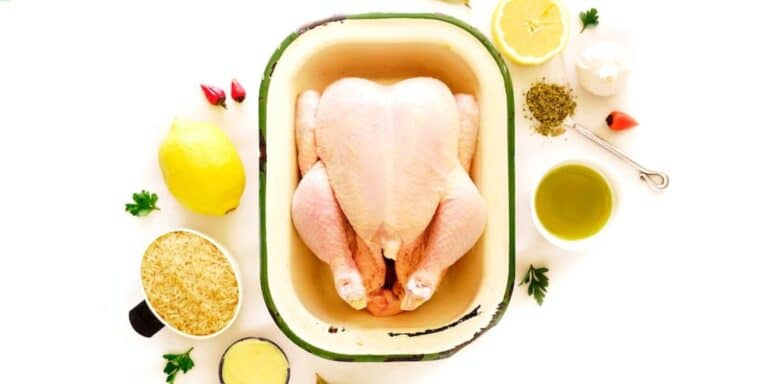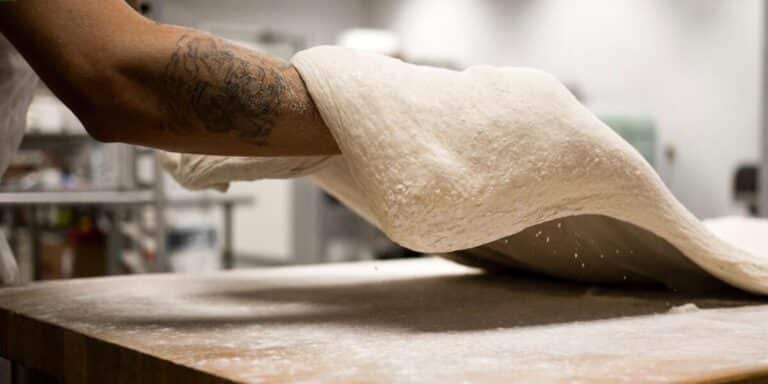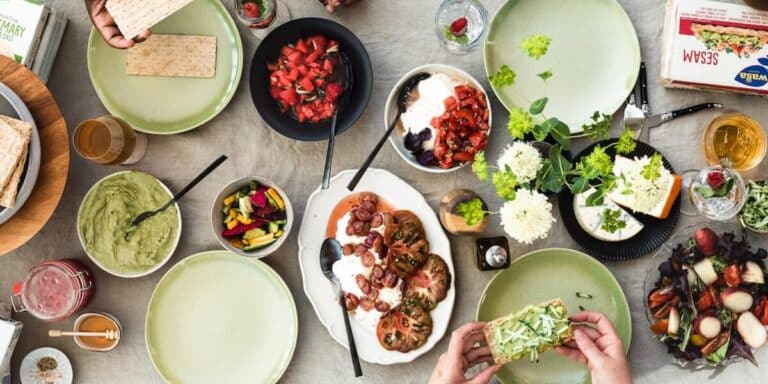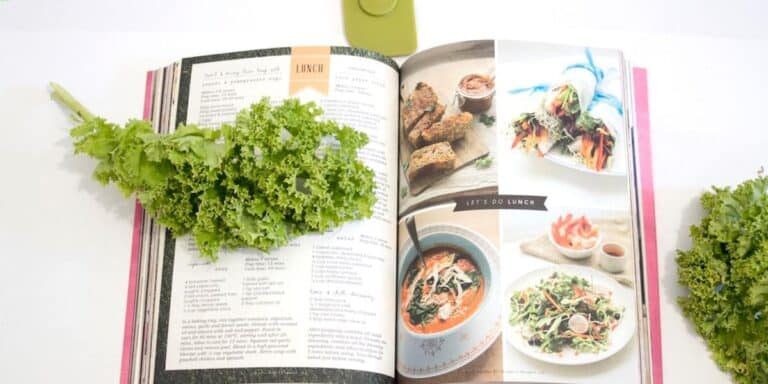Eco-Friendly Alternatives to Aluminum Foil
You’ve probably heard that aluminum foil is a recyclable material, but is it really as eco-friendly as you think? While it’s true that aluminum foil can be recycled, the process is often energy-intensive and costly. Meanwhile, a significant amount of aluminum foil still ends up in landfills and oceans, contributing to pollution and harm to wildlife. As you consider the environmental impact of your daily choices, you may be wondering if there are better alternatives to aluminum foil for cooking, baking, and food storage. Let’s explore some options that might just change the way you think about wrapping up leftovers.
Key Takeaways
- Reusable containers and beeswax wraps offer sustainable alternatives to aluminum foil for food storage and wrapping.
- Biodegradable wrapping materials made from renewable resources like cornstarch, sugarcane, or potato starch minimize environmental harm.
- Compostable food wraps made from plant-based materials like PLA, PBAT, and PBS provide a strong and compostable wrap.
- Eco-friendly parchment paper and baking sheet liners offer non-stick, non-toxic alternatives to aluminum foil for baking and roasting.
- Natural packaging options like large leaves, corn husks, and cabbage leaves can add flavor to food and reduce waste.
Switch to Reusable Containers
You can substantially reduce your reliance on aluminum foil by switching to reusable containers for storing and transporting food. Think about it – every time you use aluminum foil to wrap leftovers, you’re contributing to the massive amount of waste that ends up in landfills and oceans. By opting for reusable containers, you’ll not only reduce your environmental footprint but also save money in the long run.
If you’re used to packing lunches for work or school, ponder investing in a few stainless steel or glass containers. They’re perfect for storing sandwiches, fruits, and veggies, and can be washed and reused multiple times. You can also use them for storing leftovers in the fridge or freezer, eliminating the need for foil or plastic wrap.
When shopping for reusable containers, look for ones that are durable, leak-proof, and easy to clean. You might also want to ponder containers with lids or compartments to keep food separate and organized. Another benefit of using reusable containers is that they can help you plan your meals and snacks more effectively. By portioning out your food in advance, you can avoid overeating and reduce food waste. By making this simple switch, you’ll be taking a significant step towards reducing your reliance on aluminum foil and living a more sustainable lifestyle.
Benefits of Beeswax Wraps
You’re making the switch to a more eco-friendly kitchen, and that’s awesome! In addition to switching to reusable containers, another effective way to reduce aluminum foil usage is by utilizing beeswax wraps, a natural, eco-friendly alternative for wrapping and storing food. Not only do beeswax wraps help reduce waste, but they also offer several benefits that make them a great addition to your kitchen.
By using beeswax wraps, you’ll be reducing your reliance on single-use plastics and aluminum foil. These wraps are reusable and can be molded to fit various shapes and sizes of food, making them super versatile. Plus, they’re easy to clean and can be composted at the end of their life cycle. This means you’ll be reducing the amount of waste sent to landfills and conserving natural resources. You’ll also be reducing your exposure to chemicals found in plastic wrap and aluminum foil, which can leach into food.
Beeswax wraps also help keep food fresh by allowing it to breathe. This means your food will stay fresher for longer, and you’ll reduce food waste. They’re also perfect for packing snacks or covering bowls, making them a great solution for meal prep and on-the-go eating. Overall, beeswax wraps are a simple and effective way to make a positive impact on the environment while also benefiting your health and wallet.
Sustainable Baking Sheet Liners
When it’s time to whip up a batch of roasted vegetables or sweet treats, sustainable baking sheet liners offer a non-stick, eco-friendly alternative to aluminum foil that makes food release and cleanup a breeze. You can find these liners in various materials, such as parchment paper, silicone, and even plant-based options like coconut paper or bamboo paper. These liners not only reduce waste but also prevent food from sticking to your baking sheets, making post-meal cleanup a snap.
Using sustainable baking sheet liners also helps reduce the environmental impact of paper waste. You can reuse many of these liners multiple times, and some are even compostable or recyclable. This dramatically reduces the amount of waste sent to landfills and conserves natural resources. When shopping for sustainable baking sheet liners, look for products made with biodegradable materials and minimal packaging to further reduce waste.
Sustainable baking sheet liners are also a healthier option for you and your family. Unlike aluminum foil, which can leach chemicals into your food, these liners are non-toxic and won’t transfer any unwanted flavors or odors to your dishes. With their ease of use and eco-friendly benefits, sustainable baking sheet liners are a simple swap to make in your kitchen. Make the switch and enjoy a more convenient, healthier, and environmentally friendly baking experience. By choosing sustainable baking sheet liners, you’re taking a small step towards reducing waste and promoting a healthier planet.
Eco-Friendly Grill Mats
While sustainable baking sheet liners have your indoor cooking needs covered, eco-friendly grill mats offer a similar non-stick solution for outdoor grilling, making food release and cleanup just as effortless. You can say goodbye to scrubbing at burnt remnants on your grill grates, and hello to more time spent enjoying the company of your family and friends.
When you use eco-friendly grill mats, you’re not only reducing the hassle of grilling, but also the environmental impact of your cookouts. Unlike aluminum foil, which can take hundreds of years to decompose, most eco-friendly grill mats are made from non-toxic, biodegradable materials that can easily be recycled or composted at the end of their lifespan.
These grill mats also provide a healthier cooking surface than traditional grill grates or aluminum foil. They prevent food from coming into contact with metal or other contaminants, reducing the risk of toxic substances leaching into your meals. Plus, with their non-stick surfaces, you can cook with less oil and butter, making your grilled favorites a little healthier.
When shopping for eco-friendly grill mats, look for products made from high-quality materials that can withstand high temperatures and repeated use. You might also consider a mat with a built-in temperature guide to help you achieve perfectly cooked food every time. By making the switch to eco-friendly grill mats, you’ll be taking a significant step towards reducing your environmental footprint and cooking healthier, more enjoyable meals for you and your loved ones.
Make the Switch to Parchment
Parchment paper offers another easy alternative to aluminum foil, one that’s already a staple in many kitchens and can seamlessly take the place of foil for baking and roasting. You can use it to line your baking sheets, wrap your food for steaming, and even cover your dishes during cooking. Since parchment paper is non-stuck, you won’t have to worry about your food getting stuck, and cleanup will be a breeze.
You’ll also benefit from using parchment paper when it comes to food safety. Unlike aluminum foil, which can leach into your food, especially when cooking acidic dishes, parchment paper is non-toxic and won’t transfer any unwanted chemicals to your meals. Additionally, parchment paper can withstand high heat, making it perfect for tasks like roasting vegetables or baking cookies.
To make the switch to parchment paper, you can start by replacing your aluminum foil with parchment paper for one task at a time. Begin by using it to line your baking sheets or wrap your food for steaming. As you get more comfortable with using parchment paper, you can gradually phase out aluminum foil from your kitchen entirely. By making this simple swap, you’ll reduce your reliance on single-use aluminum foil and move closer to a more eco-friendly kitchen. Plus, you can rest assured that you’re cooking with a safe and healthy alternative. So go ahead, give parchment paper a try your kitchen (and the planet) will thank you.
Plant-Based Food Wrappings
Now that you’re considering alternatives to aluminum foil, you’re probably curious about plant-based food wrappings. You’ll be pleased to know that there are several natural packaging options available, including biodegradable wrapping materials that reduce waste and minimize environmental harm. By switching to compostable food wraps, you can guarantee a more sustainable kitchen while keeping your food fresh and secure.
Natural Packaging Options
You can ditch the aluminum foil and opt for natural, plant-based food wrappings that are just as effective, if not more so, at keeping your food fresh. Large leaves like banana, avocado, or grape leaves are great alternatives. Simply place your food in the center of the leaf, fold it over, and tie it with twine. You can also use corn husks or cabbage leaves to wrap food like tamales or dumplings. These natural wraps not only reduce waste but also add flavor to your food. For example, corn husks impart a sweet, earthy flavor to tamales, while cabbage leaves add a subtle crunch to dumplings.
Another option is to use plant-based wax wraps. These wraps are made from cotton or hemp fabric coated with natural waxes like beeswax or carnauba wax. They’re reusable, biodegradable, and compostable. Simply wrap your food in the wax wrap, and it’ll keep it fresh for hours. You can also use plant-based wax wraps to cover bowls or containers, making them a great alternative to plastic wrap. By switching to natural packaging options, you’ll reduce your environmental impact and enjoy a more sustainable way of storing and transporting food.
Biodegradable Wrapping Materials
In addition to natural packaging options like leaves and wax wraps, plant-based food wrappings made from biodegradable materials offer another sustainable alternative to traditional aluminum foil and plastic wrap. These biodegradable wrapping materials are made from renewable resources such as cornstarch, sugarcane, or potato starch. By switching to these eco-friendly wraps, you’ll reduce your reliance on non-renewable resources and minimize your carbon footprint.
You can use plant-based food wrappings for a variety of tasks, including:
- Wrapping snacks and sandwiches for a quick and easy lunch
- Covering bowls and containers to keep food fresh
- Lining baking sheets and pans for effortless cleanup
- Storing leftovers in the fridge or freezer without worrying about contamination
Compostable Food Wraps
Several brands of compostable food wraps made from plant-based materials like PLA, PBAT, and PBS are becoming increasingly popular alternatives to traditional aluminum foil and plastic wrap. You can use these wraps to cover bowls, wrap snacks, and store leftovers, just like you would with plastic wrap or aluminum foil. The best part? They’re compostable, which means they’ll reduce your waste and minimize your environmental footprint.
| Material | Description |
|---|---|
| PLA (Polylactic Acid) | Derived from cornstarch or sugarcane, PLA is biodegradable and compostable. |
| PBAT (Polybutylene Adipate-co-Butylene Terephthalate) | A biodegradable and compostable material made from renewable resources. |
| PBS (Polybutylene Succinate) | A biodegradable and compostable material made from renewable resources, such as cornstarch or sugarcane. |
| Compostable Blends | Some brands combine PLA, PBAT, and PBS to create a strong and compostable wrap. |
When shopping for compostable food wraps, look for certifications like Compostable or Biodegradable Products Institute (BPI) to guarantee they meet composting standards. By switching to compostable food wraps, you’ll be reducing your reliance on single-use plastics and promoting a more sustainable lifestyle.
Creative Uses for Mason Jars
While mason jars are typically associated with canning and food storage, they’re also incredibly versatile containers that can be repurposed in a variety of creative ways to replace aluminum foil in your kitchen. You can use them to store snacks, pack lunches, or even serve desserts. Here are a few ideas to get you started:
- Use mason jars as mini baking dishes for individual-sized desserts like pies, cakes, or custards.
- Store dry goods like coffee, tea, or pasta in mason jars with tight-fitting lids.
- Pack salads, trail mix, or energy bars in mason jars for a quick and easy snack on-the-go.
- Serve drinks like iced tea, lemonade, or infused water in mason jars with ice cubes and a sprig of fresh mint.
You can also use mason jars to store leftovers, pack takeout, or send food gifts to friends and family. Simply layer food in the jar, seal it with a lid, and add a label or gift tag. Mason jars are also great for entertaining – use them as votive holders, centerpieces, or even as a unique way to serve cocktails. With a little creativity, you can reduce your reliance on aluminum foil and make your kitchen more eco-friendly. So next time you’re cooking or packing a snack, consider reaching for a mason jar instead of a sheet of foil.
Frequently Asked Questions
Can I Reuse Parchment Paper Multiple Times in the Oven?
Verily, thou seekest to reuse parchment paper multiple times in the oven! You can, but it’s not recommended. Each use reduces its non-stick properties and increases the risk of it burning or smoking, so it’s best to use a fresh sheet.
How Do I Clean and Maintain My Reusable Containers?
"You clean and maintain reusable containers by washing them with soap and warm water after each use, then drying thoroughly. For tougher stains, try soaking or scrubbing gently, and sanitize occasionally with vinegar or baking soda solutions."
Are Beeswax Wraps Safe for Wrapping Meat and Dairy Products?
"Just like your grandma’s antique china requires gentle care, beeswax wraps need consideration when wrapping meat and dairy. You can use them, but make sure to wash thoroughly afterward to prevent bacterial growth and contamination."
Can I Use Eco-Friendly Grill Mats at High Temperatures?
You can use eco-friendly grill mats at high temperatures, but don’t exceed the manufacturer’s recommended limit, usually around 500°F (260°C). You’ll also want to check the mats’ materials and look for certifications like PFOA-free or non-toxic.
Are Plant-Based Food Wrappings Compostable at Home?
You’ll love that plant-based food wrappings are compostable at home, but you’ve got to do it right – they need oxygen, heat, and microorganisms to break down, so you can’t just toss them in your trash.





